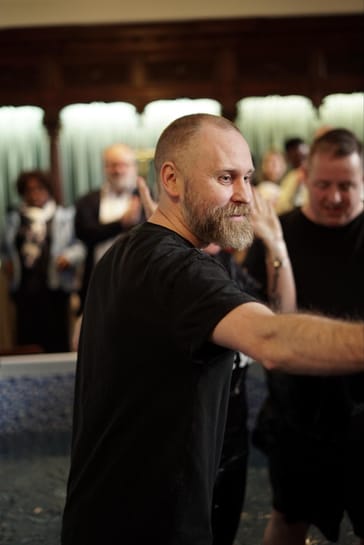1 In the third year of the reign of Jehoiakim king of Judah, Nebuchadnezzar king of Babylon came to Jerusalem and besieged it. 2 And the Lord delivered Jehoiakim king of Judah into his hand, along with some of the articles from the temple of God. These he carried off to the temple of his god in Babylonia[a] and put in the treasure house of his god.
3 Then the king ordered Ashpenaz, chief of his court officials, to bring into the king’s service some of the Israelites from the royal family and the nobility—4 young men without any physical defect, handsome, showing aptitude for every kind of learning, well informed, quick to understand, and qualified to serve in the king’s palace. He was to teach them the language and literature of the Babylonians.[b] 5 The king assigned them a daily amount of food and wine from the king’s table. They were to be trained for three years, and after that they were to enter the king’s service.
6 Among those who were chosen were some from Judah: Daniel, Hananiah, Mishael and Azariah. 7 The chief official gave them new names: to Daniel, the name Belteshazzar; to Hananiah, Shadrach; to Mishael, Meshach; and to Azariah, Abednego.
Daniel 1:1-7
The backdrop to this story is the unfaithfulness of Israel. God had set them aside to be his chosen and holy people. They were meant to live pure lives, apart from sin. However, they kept abandoning the ways of God and following the pulls of other religions and immorality. God was heartbroken and warned them that there would be judgment. This eventually came in the form of the Babylonians. They invaded Judah, the Southern Kingdom of Israel, and took all their treasures. Adding insult to injury, they also took the best of their young men. These were the future leaders, the ones who would lead any potential rebellions. In taking them, they also took their hope. Israel could not fight back with no young men to lead them. They would be indoctrinated and turned into Babylonians. In this way the future of Israel had been militarily defeated and now also would be culturally and theologically incapacitated. This has always been the tactic of the enemy, to convert the hearts and minds of the next generation. Their names were changed and they lost their true identity.
A couple of months ago I was sitting with a leader of a church that was struggling and looking like it would close. He was disappointed and frustrated that it had got to this point. However, I was not so convinced that he had failed as a leader and I told him as much. A tree does not live for ever, what matters are the seeds that it has sown while it was here. There are generations inside you and I believe that is it how we have invested in others that will truly define us.
I think that a lot of us are blind to the spiritual formation of the next generation. There is a battle for their hearts, minds and identities. They are being shaped by the culture of the world in which we live and the future of the Church will rise and fall with our support and investment into them.
The famous preacher Spurgeon once said, “Train up a child in the way he should go—but be sure you go that way yourself.” When I look at where I am now, I did not get here by myself. There have been men and women along the journey who have invested in me and encouraged me. I have been blessed to stand on the shoulders of giants. Now, I want to do the same for others. I want to help other people to flourish and to go further than me. I want to help to equip and raise young men and women to flourish in their faith, knowing their true identities in Christ.
Reflections
- Who have been people that have invested in you?
- What are the battles that you see our children and young people facing?
- How can you help invest more in others?
Respond
Lord God, we are so grateful that you have used others to invest in us and help us on our journeys. Show us who we can invest in, so that they can be strong and courageous in our challenging and unholy world. Amen


